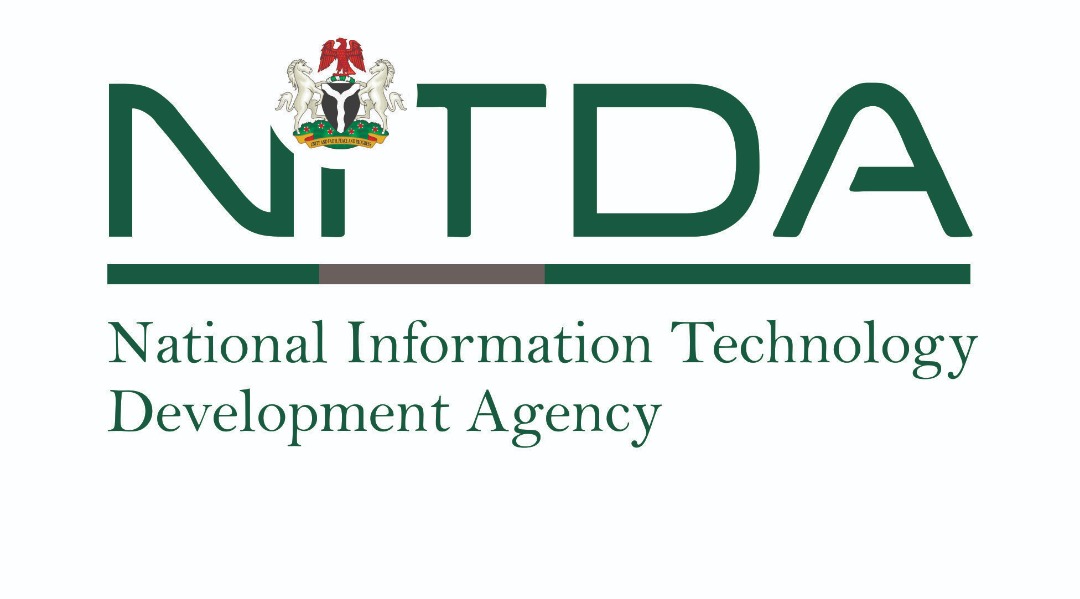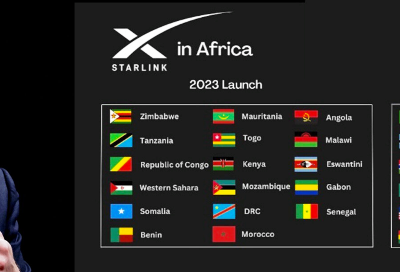Matters eRISING with Olusegun Oruame
A bill to repeal the National Information Technology Development Agency (NITDA) Act of 2007 with a more progressive law that reflects the dynamics of the industry has rather than drew support from the sector incited angsts.
It may deeply be revealing of the gaps between government and industry – notably the startup ecosystem.
Any proposed new legislation that will regulate and decide the destiny of ICT, digital economy and the entire spectrum of tech-entrepreneurship should not ignite anger and bitterness but exciting debates. It is not to the commendation of the sector’s stakeholders that a law that should drive the industry has necessitated pulling out the long knives. Something is wrong!
But here we are! NITDA’s bill is perceived as demonically Tsarist and an attempt to be punitive not progressive in line with global best practice to make technology regulations dynamic, profit-spinning for tech innovators and a win-win for all parties.
More than anything else, the undying controversy should awaken those in government on a stronger need to engage the tech ecosystem and sustain mutual trust in this industry that is perpetually in transition.
RELATED:
NITDA Wants 2007 Act Amended To Capture Agenda For Digital Economy And 4IR
NITDA Begins Enforcement Action Against Defaulting MDAs On IT Project Clearance And Local Content
It is also important for stakeholder-innovators driving the ecosystem to get off their high horses and get government to sit in conference and negotiate the future of the industry.
Innovation will never cease but innovators and those who manage the economy of innovations have an unceasing role to lobby and influence how policy and law makers determine the growth of the industry. It is sinful naivety to not insist in participating in the laws that will determine how the ecosystem evolve and/or trust government or politicians sufficiently enough to make laws amenable to the dynamics of the technology economy.
It would appear the authors of the NITDA bill did not satisfactorily engage the practitioners in the sector or did not try to reflect the global perspectives on this evolving sector. It would also appear that practitioners in the industry have not done enough to court government or win over policy drivers to their circle of thoughts.
Collaborative regulation not more levy-focused or fearful of innovations, disruptions
One of the highpoints of contemporary regulations is to be collaborative across sectors, countries (jurisdictions) and stakeholders. The idea of regulations that is punitive, fearful of innovations or disruptions and more levy-focused is becoming anachronistic. Regulation functions best with input from players and not from a perceived isolation of the drivers of that economy.
The International Telecommunication Union (ITU) best captures this in its Global ICT Regulatory Outlook 2020. It notes that “Collaborative regulation is people-centred regulation – it looks at sustainability and long-term gains as opposed to industry profit maximization and exclusive economic growth.”
It is time for NITDA to take stock of the reactions, engage the stakeholders, address the concerns, rework the bill and approach the National Assembly with the support not the discord of the industry to make a new law that works for the best interests of all parties.
After all, as the ITU rightly observed: “collaborative regulation will best ensure that fast-evolving markets, innovative technologies, products and services deliver the greatest social and economic value to the world’s population.” That should be the end-game of the proposed bill and not as it already perceived: an attempt to stifle innovation, reign as a Tsarist and collecting rents in an industry competing for space and new value propositions.
The proposed bill is both a challenge and an opportunity. NITDA and stakeholders must address the challenges and explore the vast as well as unfurling opportunities. It is no time to bicker but to mutually engage the issues and come to agreement on what legislations or policies best suit the industry.
Governments and sector regulators need to find a balance
Again, let me quote generously from a report of the ITU with the title: REGULATORY AND MARKET ENVIRONMENT (REGULATORY CHALLENGES AND OPPORTUNITIES IN THE NEW ICT ECOSYSTEM).
“The new ICT ecosystem has unleashed a virtuous cycle, transforming multiple economic and social activities on its way, opening up new channels of innovation, productivity and communication. The rise of the app economy and the ubiquity of smart mobile devices create great opportunities for users and for companies that can leverage global scale solutions and systems
“This presents both opportunities and challenges for regulators. Governments and sector regulators need to find a balance between maximizing the benefits of the new ICT ecosystem and securing optimal policy and regulatory objectives designed to address potential and actually negative consequences of a changed landscape such as abuse of market power, abuses of consumer rights and lack of development of local content production. Such a balance needs to optimise sector-specific regulation while also creating an enabling environment that contributes to innovation and investment.”
Time to address some fears or concerns of proposed bill
Need I say more? It is time to engage and address some of the fears or concerns below: I am sharing from a material already in public space.
Section 5
3) regulate the acquisition and use of digital systems and services in Government establishments and create a framework for the auditing of Government information technology systems and digital services platforms;
The word “regulate” here infringes on the autonomy of other government regulatory agencies.
Creating a framework/ policy for others to adhere to is fine but not regulate.
Current practice is that there is a NITDA approval mandated by BPP prior to implementation of IT projects in Government.
Problem is that the people at NITDA reviewing these projects do not have the skills to and sometimes mock it up. It is like pay NITDA get the certificate and then BPP approval.
This Current practice is not working well so imagine what happens when a law says they regulate this.
Section 5
6) create processes and keep appropriate data to ensure effective monitoring of information technology and digital devices to support national security objectives;
This conflicts with ONSA and NATIONAL critical INFORMATION Infrastructure monitoring.
There is cause for concern with the “keep data” part. For how long? and what security controls are in place? Because current practice is not where it should be.
At best one or two NITDA staff understand the technical nuances, but the rest do not understand security best practices.
Part 5. Section 13
There shall be paid and credited into the Fund:
(a) a levy of one per cent of the profit before tax of companies and enterprises enumerated in the Third Schedule to this Act with an annual turnover of N100, 000,000 and above;
The proposed 1% NITDA levy should be eliminated as NITDEV already takes 2% of turnover and that is clearly not judiciously applied and has led to the unnecessary large NITDA staff overheads. NITDA should practice the IT efficiencies and outsourcing of functions, that it preaches.
These levies are problematic from a government budget perspective and causes significant leakages because those organisations with such levies get approvals directly from NASS, especially committee chairs, thus stifling the constitutional checks and balances of our current system.
Section 6, states that NITDA will
“test, and approve” any technology before it is used in Nigeria, and demand whatever license fees and penalties it deems important for achieving its mandate. It is effectively a gatekeeping role, which seems contrary to the experimental spirit that spurs innovation in developed, democratic ecosystems. Cryptocurrency, which hit record trade volumes in Nigeria last year, could be the unnamed enemy here.
Section 13 notes that:
Businesses that make over 100 million naira ($243,000) a year will pay 1% of their profit before tax to a fund for Nigeria’s digital economy. The fund replaces an existing one with the same terms; the update is that tech companies and “foreign digital platforms targeting the Nigerian market” join telcos, banks, pension funds, and insurance companies in paying. Nigeria’s tax body explains that the fund, as it exists, invests in promoting technology in the country but Eghosa Omoigui, CEO of EchoVC, a venture capital firm, wonders how the fund has fared in the last 14 years.
Sections 20 and 21 cause that:
Businesses can identify as being in Nigeria’s information technology and digital economy sector only if the agency’s new register says so. Even while the Corporate Affairs Commission registers businesses, and the Central Bank of Nigeria supervises most fintechs, NITDA will now issue its own product, service, and platform licenses. Emoruwa sees “a back door channel to legitimize future sinister acts such as the Twitter ban” in the agency’s power to revoke tech companies’ licenses.
The whole of section 22.
It is difficult to understand the logic behind it and should be dropped in totality.
Example: “In the case of a body corporate, to a fine of not less than N30,000,000.00 and in addition, every director and principal officer of such body corporate shall individually be liable to not less than N3,000,000.00 or imprisonment for a term of not less than 2 years or both”.
These are unnecessary and embarrassing self-inflicted legal drafting difficulties that does not speak well of the legal team was engaged to prepare this draft. As it is, this draft if passed will accelerate the ongoing exodus of business and people to places like Ghana, Kenya, and South Africa. Getting them back subsequently, will be exceedingly difficult.
Section 27 – seems to focus on changing the current name of Galaxy Backbone. Is this necessary for an incorporated entity, legislation is not required for this.
Sections 28 -31 – looks like NITDA is endeavouring to exempt themselves from lawsuits and putting it into law? How does that work? Is this constitutional?
The part on regulating and issuing license to all operators in IT will be of interest to the private sector as it seems to be another income generating strategy without value creation.
We can already see and interesting and worrisome set of articles.
and
https://notadeepdive.substack.com/p/nigerias-dangerous-new-bill-threatens
It is however important to understand the issues.
The authorities seem to only see the immediate problems they face with implementing NDPR, they are trying to address them by repealing the existing Act, then overextending themselves and make a power grab that is not in the best interest of Nigeria, the digital economy, and the sector. If this draft NITDA amendment bill is passed as is, then all government agencies will be regulated by NITDA, since no organisation can function without IT.




























